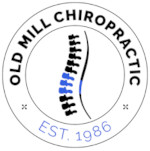About St Peters Chiropractic and St Peters Viscerosomatic Disease
If you find yourself with painful periods, chronic pelvic pain, irritable bowel syndrome, interstitial cystitis, bowel issues and bladder disturbances, gynecologic and sexual problems, even infertility, you are not alone. While these types of problems may not be topics of discussion around the dinner table or even in conversation amongst friends, these viscerosomatic conditions certainly do affect your everyday life.
of or relating to the viscera (the internal organs enclosed within a body cavity, including the abdominal, thoracic, pelvic, and endocrine organs) and the body
Though the field of study is smaller and more recent, it is quite promising. Spinal nerves supply messages from the brain and spinal cord to these areas of the body. Decompressing compressed nerves in the spine may potentially relieve the symptoms and pain of these types of conditions.
Pelvic Pain and Organic Dysfunction (PPOD)
Coined by James Browning DC, the Pelvic Pain and Organic Dysfunction (PPOD – pronounced P POD or “pea-pod”) syndrome is a very common, yet little known and routinely misdiagnosed disorder that is a frequent cause of a wide range of symptoms that include chronic pelvic pain and various disturbances of pelvic organ function. Caused by an atypical mechanical disorder of the spine, the PPOD syndrome is extremely variable in its clinical and symptomatic presentation. In total, there are nearly four dozen individual symptoms that fall within the parameters of, and contribute to the varying presentations of the disorder, and those who are affected may develop any number and any combination of any of these various complaints. For example, in some individuals, the primary complaints may be limited to pain at one or more regions of the pelvis, rectum or genital areas, while in other PPOD syndrome patients, the symptoms can be much more extensive and severe, and include widespread pelvic pain and gross accompanying disturbances of bladder, bowel, gynecologic and sexual function. Dr. Browning uses flexion-distraction manipulation to manage the underlying mechanical disorder of the spine which is causing PPOD syndrome.
Gillespie et al discuss their findings that decompressing the L5 nerve root (surgically) relieves interstitial cystitis pain. (1) Cox Technic Flexion Distraction and Decompression may be a gentle, non-surgical means to decompress the nerve to relieve pain.
IBS - Irritable Bowel Syndrome
Irritable bowel syndrome is a common disorder that affects the large intestine and colon, causing cramping, abdominal pain, bloating, gas, diarrhea and constipation.
The lumbar and sacral nerves that originate from the low back supply the large intestine and colon with nerve supply.
Irritable bowel syndrome is often given relief with spinal manipulation of the low back.
Cox Technic's ability to decompress nerves, open spinal canal space, drop intradiscal pressures and realign spinal segments may be a gentle contributing factor to improvement of these difficult life-altering conditions. (2)
Contact Old Mill Chiropractic for a consultation and treatment for your viscerosomatic condition.
- Gillespie L et al: Lumbar nerve root compression and interstitial cystitis - response to decompressive surgery. Br J Urology 1991:68 Link
- Hawk C, Long, Azad: Chiropractic care for women with chronic pelvic pain: a prospective single-group intervention study. Journal of Manipulative and Physiological Therapeutics 1997; 20(6):424 Link
